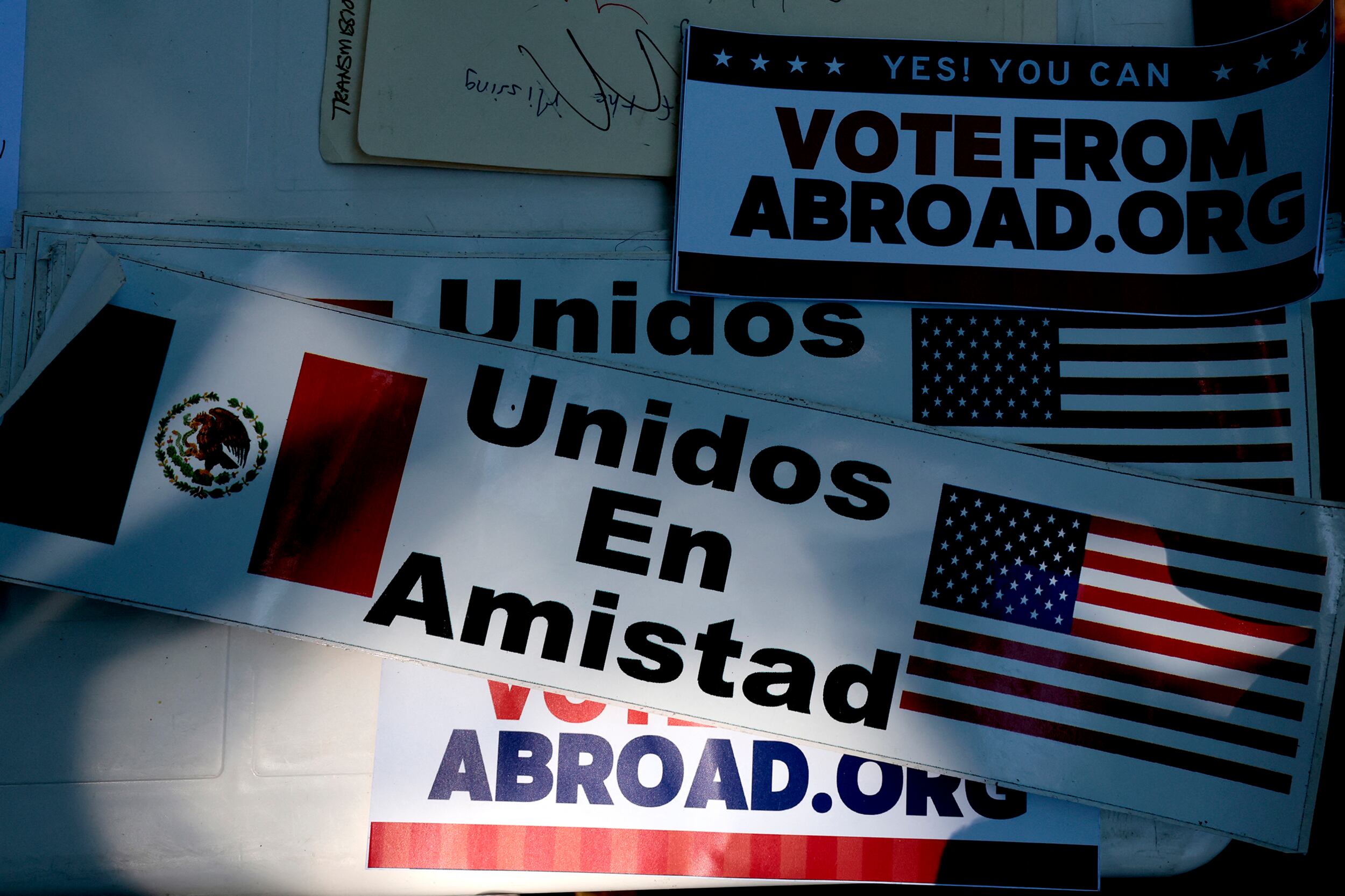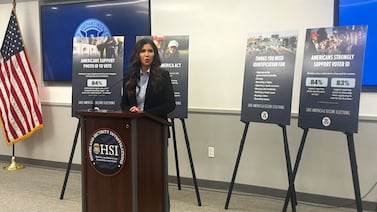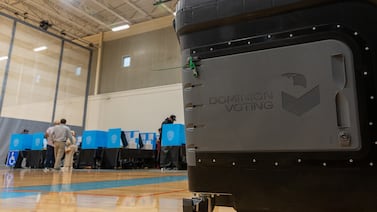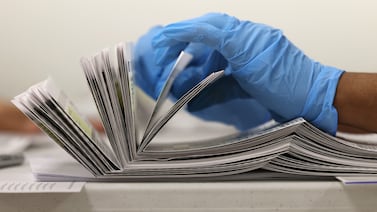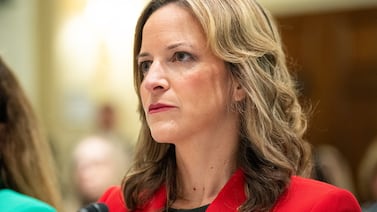Votebeat is a nonprofit news organization reporting on voting access and election administration across the U.S. Sign up for Votebeat Michigan’s free newsletter here.
Michigan voters serving in the military away from home have a new way to return their ballots starting this week.
With the launch of the Electronic Delivery and Return Portal, these voters will have the option to fill out their ballot and return it all electronically through a secure online portal. It’s a small step for a state that, compared with many others, strictly limits who can return ballots electronically.
Michigan previously required all voters covered by the Uniformed and Overseas Citizens Absentee Voting Act, or UOCAVA to return their ballots only by mail. In 2022, lawmakers approved a change for military voters only, allowing them to return ballots electronically, but implementation was delayed until this year to align with other election law updates.
Sen. Ruth Johnson, a Republican from Holly and a former Michigan secretary of state, introduced the bill in 2021. She said at the time that the mail requirement could be “difficult for military personnel in combat areas or on a ship at sea,” where mail service can be slow or inconsistent.
With the change, she said, these voters could return ballots using “the same secure technology they already use to transmit classified documents.”
In Michigan, only military personnel will have the new option to return ballots electronically. Other UOCAVA voters can still receive ballots electronically but must return them by mail. Only a handful of states — Iowa, Missouri, and Texas — have similar restrictions. Most states offer the same electronic options to all their overseas voters. Some offer them more widely even to voters living in state.
Electronic return reduces the risk of ballots getting lost
Expanding the option for military voters first is a normal first foray into electronic return for states, said Will Adler, senior associate director of the Elections Project at the Bipartisan Policy Center. Michigan and other states require overseas military voters to use their verified electronic signature from the U.S. Department of Defense, so ballots have an added level of security.
Most overseas voters choose to return their ballots by mail, Adler said. But in 2024, a majority of states allowed voters to return ballots electronically.
Electronic return through online portals can especially benefit Americans in places without consistent or secure mail access, where a ballot can easily get lost. Fax and email are also valid options for states under federal law, and these are still the most common electronic options that states offer, but they pose security and technical challenges, too.
Experts say that online portals, like Michigan’s new one, tend to be the most secure electronic option. Cheri Hardmon, spokesperson for the Michigan Department of State, said a portal allows for both security and “administrative efficiencies.”
It’s important to have independent testing on such portals, Adler said, but they tend to start from a stronger place than faxes or email.
“Faxed ballots are most likely not encrypted, while emailed ballots might be,” Adler said. “One benefit that a portal should have over email is the ability to block malicious attachments.”
Other states go further with electronic ballot return
While Michigan is just now implementing the change for military voters, a number of states already extend the option to all UOCAVA voters, and in some cases, even to some voters stateside who could benefit. Research last year from the National Conference of State Legislatures found that more than a dozen states allow voters with disabilities to return their ballots electronically.
Some of those states go even further: Colorado allows voters experiencing natural disasters or personal emergencies to use electronic ballot return in some cases; West Virginia allows for qualified first responders to do the same.
It’s unlikely that electronic ballot return will ever be available for all voters, Adler said. The security measures in place make it a viable option only for a small group of voters — Michigan had 21,910 UOCAVA voters cast ballots in the 2024 general election, according to the Michigan Department of State — or just over one-third of 1% of all ballots cast. To open the option up to everyone could lead to major concerns about the integrity of the system overall.
“People are trying very hard to mitigate [the risks], but there’s just a long road ahead to addressing enough of the problems that I would feel comfortable extending it to a large group of voters,” Adler said. “Most security experts agree with that.”
Hayley Harding is a reporter for Votebeat based in Michigan. Contact Hayley at hharding@votebeat.org.

